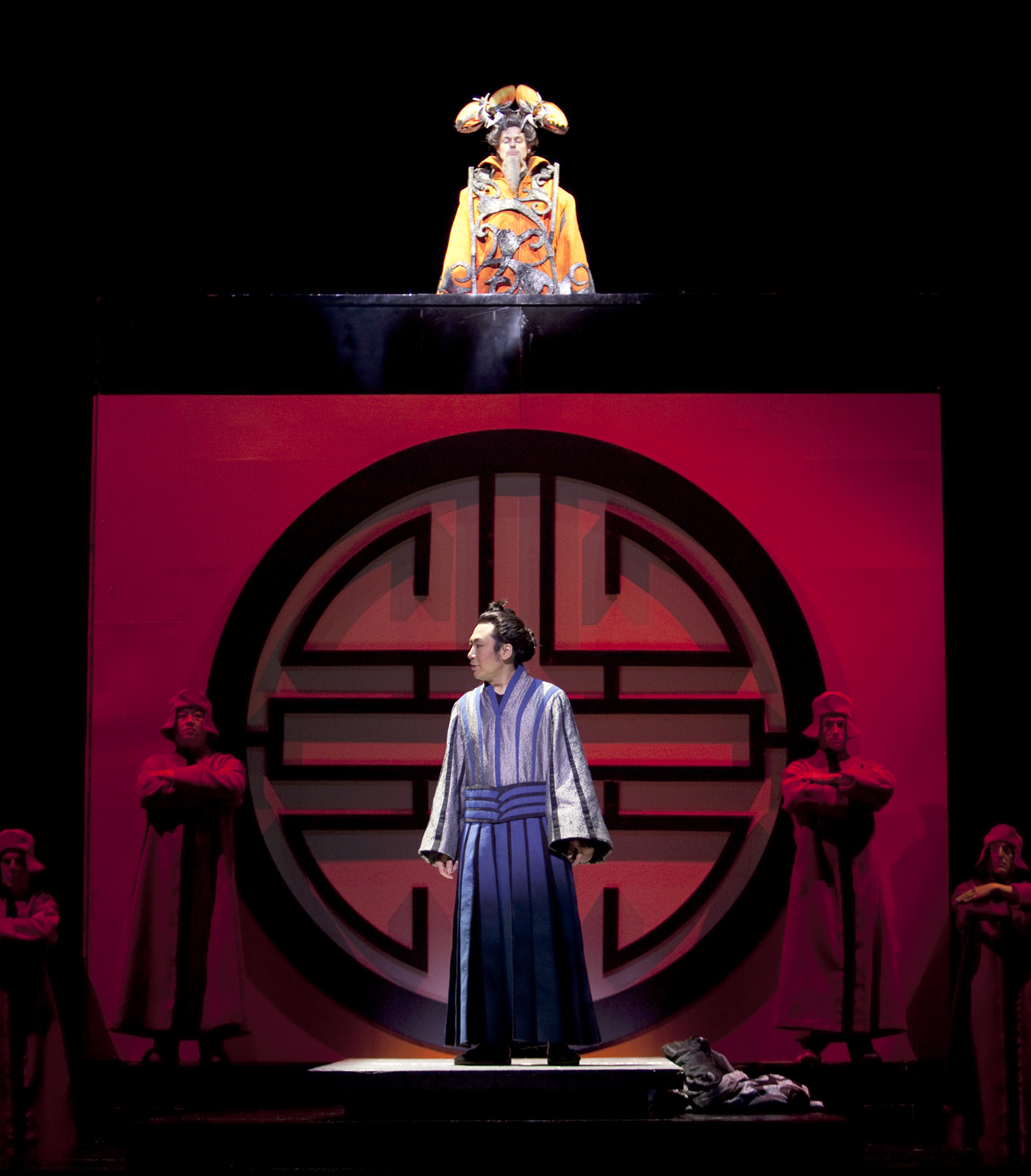Tea: Mirror of Soul: Reflection, Beauty and Contrast

Tea: A Mirror of Soul is an exotic, symbolic, operatic exploration of the role of tea in Eastern culture. This unique piece is playing at the Queen Elizabeth Theatre for four nights only: May 4, 7, 9 and 11.
Mirrors are about perception. Is a reflection truth or its opposite? I found this opera full of contrast and juxtapositions, perhaps a more accurate reflection of the muddled and conflicted human spirit than I had expected to see.
The piece opens with a bare stage, a zen garden with stones and running water, lit to evoke all that is peaceful, melancholy and beautiful about the world. My breath was hushed at the sight. Moments later neon lit instruments move down the auditorium, harshly at odds with the peaceful scene before me, only to be replaced in turn by the melodious chanting of monks. At the time I just thought the neon was just a poor choice, but juxtapositions continue to pop up through the production; traditional chaste modesty followed by lascivious choreography and entendre, sombre dialogue delivered maniacally, peace and frenzy, beauty and garishness. As loath as I am to admit it, the human soul is the same: at once tasteless and perfect, beautiful and vulgar.
Reflections abound in the design of this piece. The walls of the set are even reflective, creating shadowy images in the wings of the characters as they pass by. The lighting and set design are inspiring and provocative. Except for the times where I felt I was watching a production of the Wizard of Oz, complete with wobbly risers in the garden scene at the palace. The main characters' costumes were a bit bright and garish for my taste, although there were some beautiful things done with iridescent fabrics.
Tan Dun's score is very evocative. I loved, loved, loved! the organic music. The orchestral music felt more like a film soundtrack than an opera score, more subtle, supporting the story without really coming to the forefront of the narrative. The only time I really felt overcome with sound was the storm scene, which was admittedly quite impressive.
The dialogue was surprisingly fast paced for an opera and dense with information. The poetry and narrative elements were effective but the “straight” dialogue felt staccato and too contemporary. There were sections I wish had been spoken instead of “almost sung” it felt like they were biting up scales. On the other hand, the tactile use of consonants was very interesting. I didn't think the sibilant S's worked given the context of when they were used. I always find sibilance to be more a menacing sound. And a little cheesy. However, I felt the use of T's and K's to express conflict, longing and grief were incredibly effective. What a great way to use language, making it a physical representation of the inner life.
Although they all had great voices, I was generally underwhelmed by the acting of the cast. Opera generally feels a little heavy handed and this particular piece was a little too Punch and Judy for my taste. With the exception of Nancy Allen Lundy playing Lan who just blew me away. I usually dislike the Soprano roles, but her voice and body radiated with such passion and she never seemed over the top or forced. Her death scene almost had me in tears. I did feel like her character's dialogue was more elegant than the others, but it's hard to tell. The other performers certainly had more forces working against them. For example, between his hat and his beard Kirk Eichelberger's face was in shadow for the entire performance.
Aesthetically this production excelled itself. The imagery, both aural and visual was just gorgeous. I found the dialogue and occasional comedic elements a bit jarring, but this is always the case when implementing more experimental concepts. A truly unique piece, I think Tea: Mirror of Soul has something in it for everyone.



